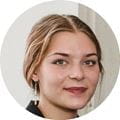Under the direction of Brandon Oberlin, PhD, the Oberlin Lab focuses on the range of addiction development, including risk factors, maintenance and progression, and recovery and relapse prevention. Currently, the lab is researching unhealthy decision-making, behavioral traits linked to addictions (alcohol and substance use disorders) and brain activation governing those behaviors. The lab utilizes neuroimaging (fMRI) to better understand brain systems underlying addiction, laboratory behavioral tasks to measure behavior and digital visualization methods for relapse prevention. With goals in improving addiction treatment, the lab’s collaboration with experts from IU School of Medicine and IU Indianapolis targets behavioral risk factors, executive/attentional brain systems, dopamine motivational circuits and the use of controlled alcohol administration.
Research
Research Funding
National Institute of Health
National Institute on Alcohol Abuse and Alcoholism
National Institute on Drug Abuse
Publications
Lewandowski ME, Delawalla CN, Butcher TJ, Oberlin BG (2024). Changes in Substance Use, Recovery, and Quality of Life During the Initial Phase of the COVID-19 Pandemic. PLOS ONE. In press.
Lungwitz EA, Dzemidzic M, Shen YI, Plawecki MH, Oberlin BG. (2023). Brain Response in Heavy Drinkers During Cross-Commodity Alcohol and Money Discounting with Potentially Real Rewards: A Preliminary Study. Drug and Alcohol Dependence Reports, 8:100175.
Halcomb ME, Dzemidzic M, Shen YI, Lin Z, Butcher TJ, Yoder KK, Oberlin BG. (2022). Delay Discounting and Alcohol Consumption Correlate with Dorsal Anterior Insula Activation During Choice in Non-Treatment-Seeking Heavy Drinkers. Alcoholism: Clinical and Experimental Research, 46(8).
Shen YI, Nelson AJ, Oberlin BG (2022). Virtual Reality Intervention Effects on Future Self-Continuity and Delayed Reward Preference in Substance Use Disorder Recovery: Pilot Study Results. Discover Mental Health, 2(1).
Oberlin BG, Carron CR, Ramer NE, Plawecki MH, O'Connor SJ, Kareken DA (2021). Intoxication Effects on Impulsive Alcohol Choice in Heavy Drinkers: Correlation With Sensation Seeking and Differential Effects by Commodity. Alcohol Clin Exp Res, 45(1):204-214.
Butcher, TJ, Dzemidzic M, Harezlak J, Hulvershorn LA, Oberlin BG (2021). Brain Responses During Delay Discounting in Youth at High-Risk for Substance Use Disorders. NeuroImage Clinical, 32:102772.
Oberlin BG, Ramer NE, Bates SM, Shen YI, Myslinski JS, Kareken DA, Cyders MA (2020). Quantifying Behavioral Sensation Seeking With the Aroma Choice Task. Assessment, 27(5):873-886.
Amico E, Dzemidzic M, Oberlin BG, Carron CR, Harezlak J, Goñi J, Kareken DA (2020). The disengaging brain: Dynamic transitions from cognitive engagement and alcoholism risk. Neuroimage, 209:116515.
Oberlin BG, Shen YI, Kareken DA. (2020). Alcohol Use Disorder Interventions Targeting Brain Sites for Both Conditioned Reward and Delayed Gratification. Neurotherapeutics, 17(1):70-86.
Kudela MA, Dzemidzic M, Oberlin BG, Lin Z, Goñi J, Kareken DA, Harezlak J. (2019). Semiparametric Estimation of Task-Based Dynamic Functional Connectivity on the Population Level. Front Neurosci, 13:583.
Oberlin BG, Dzemidzic M, Eiler WJA 2nd, Carron CR, Soeurt CM, Plawecki MH, Grahame NJ, O'Connor SJ, Kareken DA (2018). Pairing neutral cues with alcohol intoxication: new findings in executive and attention networks. Psychopharmacology (Berl), 235(9):2725-2737.
Eiler WJA 2nd, Dzemidzic M, Soeurt CM, Carron CR, Oberlin BG, Considine RV, Harezlak J, Kareken DA. (2017). Family history of alcoholism and the human brain response to oral sucrose. Neuroimage Clin, 17:1036-1046.
Charpentier J, Dzemidzic M, West J, Oberlin BG, Eiler WJ, Saykin AJ, Kareken DA. (2016). Externalizing personality traits, empathy, and gray matter volume in healthy young drinkers. Psychiatry Research: Neuroimaging, 248:64-72.
Oberlin BG, Dzemidzic M, Harezlak J, Kudela MA, Tran SM, Soeurt CM, Yoder KK, Kareken DA. (2016). Corticostriatal and dopaminergic response to beer flavor with both fMRI and [11C] raclopride Positron Emission Tomography. Alcoholism: Clinical and Experimental Research, 40(9):1865-73.
Weafer J, Džemidžic M, Eiler II WJA, Oberlin BG, Wang Y, Kareken DA (2015). Associations between regional brain physiology and trait impulsivity, motor inhibition, and impaired control over drinking. Psychiatry Research: Neuroimaging.
Kareken DA, Džemidžic M, Wetherill M, Eiler II W, Oberlin BG, Harezlak J, Wang J, O’Connor SJ (2013) Family history of alcoholism interacts with alcohol to affect brain regions involved in behavioral inhibition. Psychopharmacology 228(2): 335-45.
Oberlin BG, Džemidžic M, Tran SM, Soeurt CM, Albrecht DS, Yoder KK, Kareken DA (2013) Striatal dopamine release in response to beer flavor: mediation by family history of alcoholism. Neuropsychopharmacology 38(9): 1617-24.
Oberlin BG, Džemidžic M, Bragulat V, Lehigh CA, Talavage T, O’Connor SJ, Kareken DA (2012) Limbic responses to reward cues correlate with antisocial trait density in heavy drinkers. NeuroImage 60(1) 644-52.
Oberlin BG, Best C, Matson L, Henderson A, Grahame N (2011) Derivation and characterization of replicate high- and low- alcohol preferring lines of mice and a high-drinking crossed HAP line. Behavior Genetics 41(2): 288-302.
Oberlin BG, Bristow RE, Heighton ME, Grahame NJ (2010) Pharmacologic dissociation between impulsivity and alcohol drinking in High Alcohol Preferring mice. Alcoholism: Clinical and Experimental Research 34(8): 1363-75.
Oberlin BG, Grahame NJ (2009) High alcohol preferring mice are more impulsive than low alcohol preferring mice as measured in the delay discounting task. Alcoholism: Clinical and Experimental Research 33(7):1-10.
Research Team

Sarah Marie Turo, BA
Clinical Research Coordinator
IU School of Medicine Department of Psychiatry

Yitong Iris Shen, BA
Graduate Student
IU School of Medicine Department of Psychiatry
IU Indianapolis Department of Psychology

Basma O. Aly, BS
Clinical Research Technician
IU School of Medicine Department of Psychiatry

Sampada Bhatnagar, MS
Clinical Research Technician
IU School of Medicine Department of Psychiatry

Colton Michael Lind, BS
Clinical Research Technician
IU School of Medicine Department of Psychiatry
Previous Trainees

Elizabeth Lungwitz, PhD
Postdoctoral Researcher
IU School of Medicine Department of Psychiatry

Tarah Butcher, MS
Graduate Student
IU School of Medicine Department of Psychiatry
IU Indianapolis Department of Psychology

Christina Jacksack, BS
Clinical Research Technician
IU School of Medicine Department of Psychiatry



